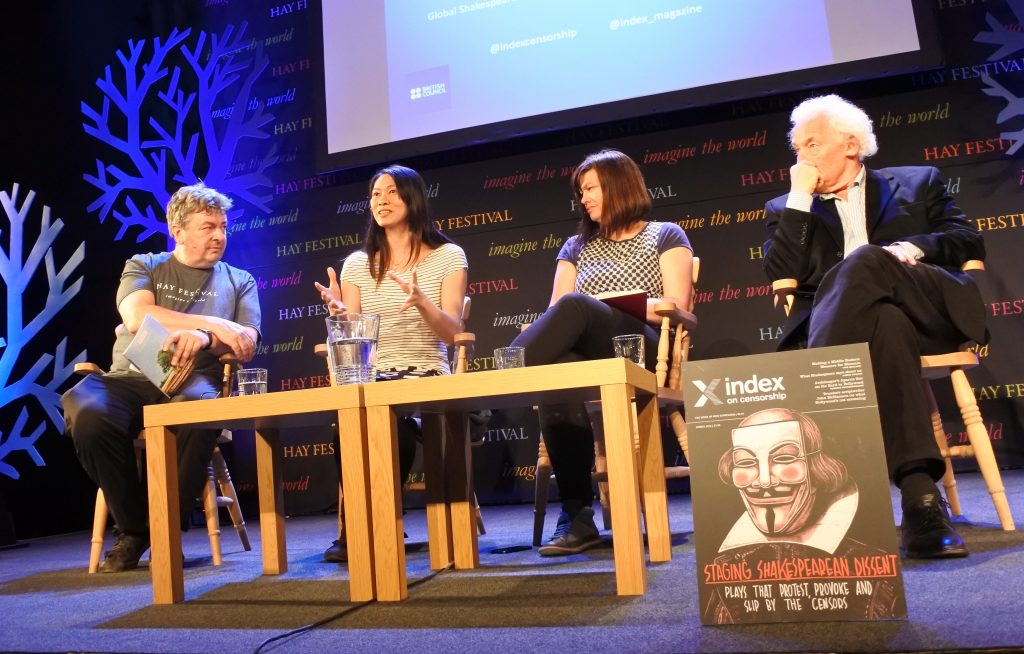 Hay Festival in Wales, UK, is the largest literary festival in the world. On our panel with actor Simon Callow on June 3, 2016, we explored issues of censorship in appropriating and teaching Shakespeare. MIT Global Shakespeares co-founder Alexa Alice Joubin spoke at the Hay Festival.
Hay Festival in Wales, UK, is the largest literary festival in the world. On our panel with actor Simon Callow on June 3, 2016, we explored issues of censorship in appropriating and teaching Shakespeare. MIT Global Shakespeares co-founder Alexa Alice Joubin spoke at the Hay Festival.
Shakespeare has been used to divert around censorship, “sanitised” and redacted for children, young adults and school use, and even used as a form of protest all over the world. While censors have reacted differently to Shakespeare (sometimes with a blind eye), self-censorship (by directors and audiences) is part of the picture as well.
Not all censors work in the capacity of a public official. Many censors are in fact editors, writers and educators who are gatekeepers of specific forms of knowledge. Julius Caesar, for example, is often deemed one of the more appropriate plays to teach and perform in American school systems, because the themes of honor, free will and principles of the republic (as opposed to more sexually charged themes in other plays) are considered inspiring and suitable in the educational context.
The themes in such plays as Romeo and Juliet (teen exuberance and sex), The Merchant of Venice (anti-Semitism), Othello (racism and domestic violence), and Taming of the Shrew (sexism) make modern audiences uncomfortable, but they compel us to ask harder questions of our world.
While Shakespeare has been a large part of American cultural life, the “Shakespeare” that is taught and enacted in schools has often been redacted and even censored. But this is not a new phenomenon. The history of bowdlerized Shakespeare goes back to the nineteenth century. To bowdlerize a classic means to expurgate or abridge the narrative by omitting or modifying sections that are considered vulgar.







